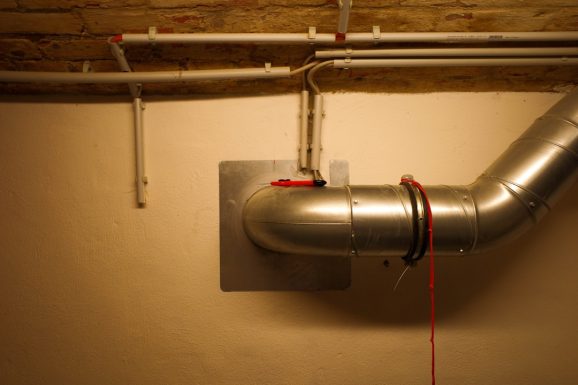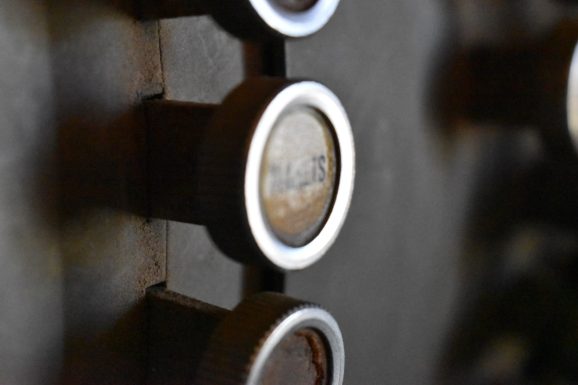Keeping cool during sweltering summer months isn’t just about setting the thermostat—it’s about making sure the air conditioner is running at peak performance. For many homeowners, air conditioning is the cornerstone of indoor comfort. Yet, without proper maintenance, even the best AC units can become inefficient, costing money, wasting energy, and reducing comfort levels. Understanding the importance of regular maintenance isn’t just a matter of comfort—it’s a matter of efficiency and long-term savings.
TLDR: To keep an air conditioner working efficiently, regular maintenance is essential. This includes cleaning or replacing filters, checking coolant levels, inspecting ductwork, and scheduling professional tune-ups. Maintaining an AC not only reduces energy bills but also extends the unit’s life and improves indoor air quality. Neglecting basic upkeep can lead to poor performance, unexpected breakdowns, and higher costs over time.
The Importance of Air Conditioner Maintenance
All Heading
Air conditioning systems are complex machines that require care. Over time, components wear out, filters clog, and performance declines. Without maintenance, the unit has to work harder to cool the space, which consumes more energy and puts unnecessary strain on the system.
Some of the key benefits of regular AC maintenance include:
- Lower energy bills – A well-maintained system operates more efficiently, using less electricity.
- Longer unit lifespan – Regular upkeep helps prevent premature failure of parts and prolongs overall life.
- Improved air quality – Clean filters reduce allergens and dust inside the home.
- Fewer repairs – Routine inspections can catch minor issues before they become major problems.
Key Maintenance Tasks for Efficiency
1. Replace or Clean Air Filters
One of the simplest but most important tasks is changing or cleaning air filters. Dirty filters block airflow, forcing the system to work harder. Experts recommend checking filters monthly and replacing them every 1–3 months during cooling season, depending on usage.
2. Inspect and Clean Coils
Both the evaporator and condenser coils play a critical role in heat exchange. Over time, these coils accumulate dirt, which impedes airflow and reduces the system’s ability to absorb heat. Cleaning the coils annually ensures the AC system can cool efficiently.

3. Check Refrigerant Levels
Too much or too little refrigerant can affect cooling performance. Low refrigerant often indicates a leak, which requires immediate attention. Monitoring and maintaining the correct refrigerant charge is best left to professionals but remains an important aspect of overall efficiency.
4. Clear Condensate Drains
A clogged drain can prevent humidity from being properly removed from the air, leading to excess moisture, mold growth, and water damage. Use a stiff wire or a wet/dry vacuum to clear clogs regularly. This keeps the system running smoothly and safely.
5. Inspect Ductwork for Leaks
Leaky ducts can allow cooled air to escape into unwanted areas like attics or crawlspaces. Sealing these leaks with mastic or metal tape boosts system efficiency significantly—often reducing energy costs by up to 20% in some homes.

6. Keep the Area Around the Outdoor Unit Clear
Trees, bushes, and debris should be kept at least two feet away from the condenser unit outside. Adequate clearance improves airflow and allows the unit to expel hot air efficiently. Cleaning away leaves and dirt can also prevent corrosion over time.
When to Schedule Professional Maintenance
While many maintenance tasks can be tackled by homeowners, some require a trained eye. Many HVAC companies offer annual inspections and tune-ups that include detailed inspections of electrical components, refrigerant pressure checks, and deep cleaning of internal parts.
Experts suggest scheduling professional maintenance at least once a year—preferably in early spring before the cooling season starts. Some providers offer maintenance plans that provide seasonal check-ups and priority service in case of breakdowns.
The Efficiency and Environmental Link
Efficiency isn’t just about saving money—it’s also about reducing the environmental impact of air conditioning. The less energy an AC uses, the fewer greenhouse gases are emitted into the atmosphere. In hot climates where air conditioning can account for over half of the electricity used in homes, the gains from efficient systems are even more significant.
Moreover, environmentally conscious consumers are encouraged to ensure systems don’t leak refrigerants, especially older units that may use ozone-depleting substances. Replacing outdated AC systems with ENERGY STAR® certified models can also lead to significant energy savings and environmental benefits.
Signs Your AC Needs Maintenance
Even if it seems like the AC is working fine, there may be subtle signs that something’s off. These include:
- Weaker airflow from vents
- Unusual noises (banging, grinding, or rattling)
- Inconsistent temperatures throughout the home
- Higher-than-usual energy bills
- Unpleasant odors when the unit runs
Addressing these signs early helps avoid costly repairs and keeps the home comfortable.
Conclusion
Air conditioner maintenance may seem like a chore, but it’s an investment in comfort, savings, and peace of mind. By taking the time—or hiring the right professionals—to keep the system running smoothly, homeowners ensure efficient performance, cleaner air, and lower utility bills. With just a bit of care each season, an air conditioner can last longer and work better, even on the hottest days of the year.
Frequently Asked Questions (FAQ)
-
Q: How often should I replace my air conditioner’s filter?
A: During peak usage, filters should be checked monthly and replaced every 1–3 months, depending on usage and type of filter. -
Q: Is annual professional maintenance necessary?
A: Yes, a yearly tune-up by a certified technician ensures deeper inspections and servicing that homeowners might overlook. -
Q: Can I clean the AC coils myself?
A: Yes, but it requires care. Use a soft brush or coil cleaner. For best results, consider professional cleaning for very dirty coils. -
Q: Why is there water under my indoor AC unit?
A: This may indicate a clogged condensate drain or frozen evaporator coil. It should be addressed to prevent water damage. -
Q: How can I make my AC more energy-efficient without replacing it?
A: Regular maintenance, sealing duct leaks, using programmable thermostats, and improving insulation can significantly boost efficiency.













Recent Comments